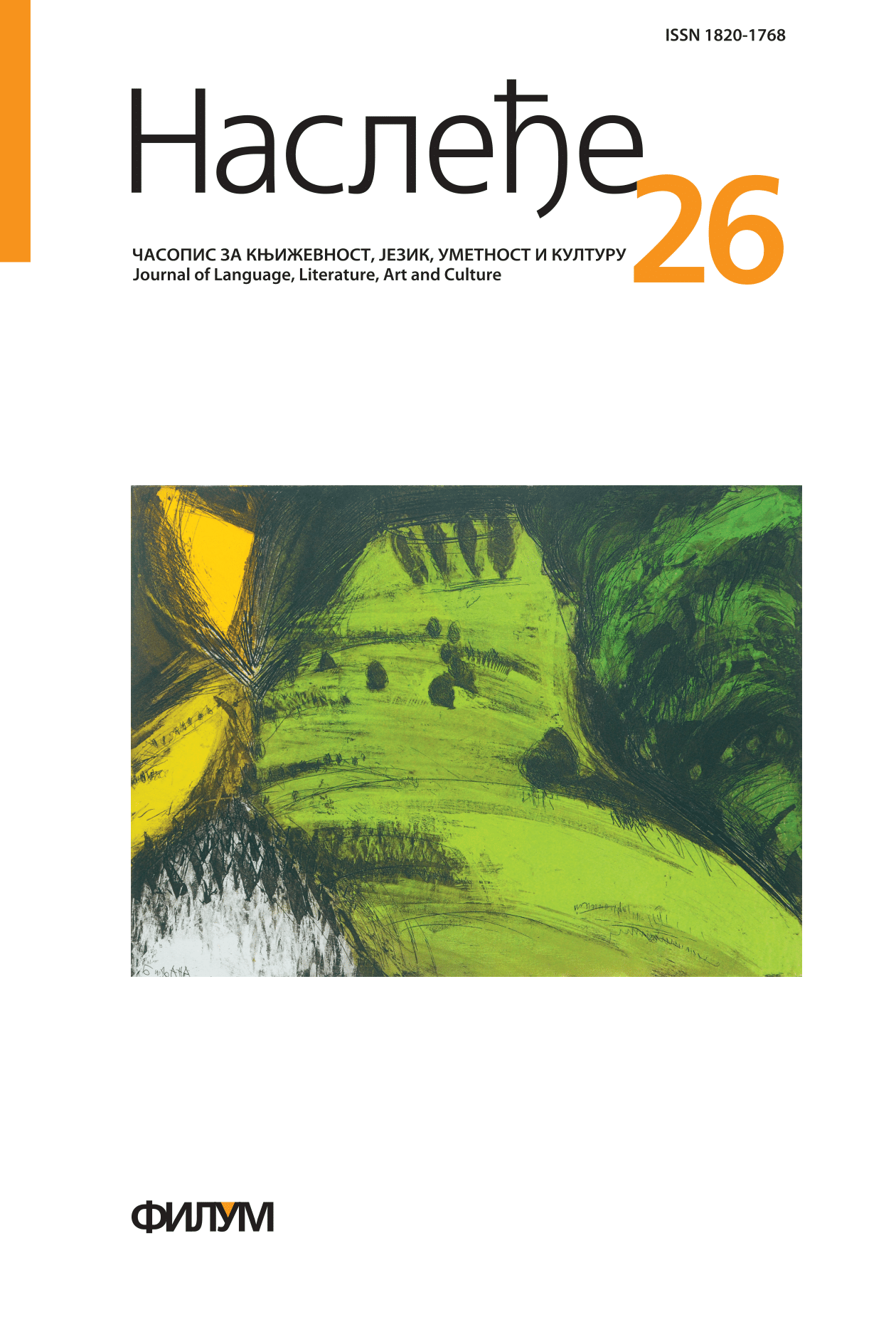THE IMPORTANCE OF BEING PROFICIENT IN ENGLISH FOR EMPLOYEES OF TOURIST AGENCIES
Keywords:
tourism, the English language, tourist agencies, the city of KragujevacAbstract
English being the most widely spread modern language, it is arguably the most extensively used language in the area of tourism. With this in mind, the authors of this paper draw attention to the significance of adequate command of English in (natively Serbian-speaking) employees working in local travel agencies. The identification of current issues regarding the use of English was conducted for the purpose of determining the key factors which affect the communication occurring in the context of workers’ everyday business communication, especially in the situations which require fluent exchange of information with foreign clients. The analysis is based on the three-part questionnaire distributed among 31 travel-agency employees from the city of Kragujevac area, who manifested different levels of knowledge of English. Data obtained revealed that informants found general understanding of English utterances the most problematic, along with situations where they had to differentiate between formal and informal uses, while reading was regarded as the least important skill. Furthermore, they did not see their using of English as an obstacle to successful communication with clients. Results of this research are used underline both the importance of proper treatment of English at all educational levels (which should be reflected in the design of ESP curricula) and the recognition of the knowledge of English as one of the key skills for a tourist worker.
References
Афзали и Фахарзаде 2009: K. Afzali, and M. Fakharzadeh, A needs analysis survey: The case of Tourism letter writing in Iran. ESP World, volume 8, issue 1(22).
Ал-Катиб 2005: M. Al-Khatib, English in the workplace: Analysis of the communication needs of tourism and banking personnel. Asian EFL Journal, 7(2), 1–20.
Блу и Харун 2003: G. M. Blue and M. Harun, Hospitality language as a professional skill. English for specific purposes (Vol. 22, pp. 73–91).
Чен и Хсу 2000: J. S. Chen and C. H. U. Hsu, Measurement of Korean tourists’ perceived images of overseas destinations. Journal of Travel Research, 38, 411–416.
Дејвидсон 1992: R. Davidson, as cited in D. Embleton and S. Hagen, Languages in international business – A practical guide. London, UK: Hodder and Stoughton.
Деверо 1998: C. Devereux, More than ‘Have a Nice Day’: Cross cultural service competence and the tourist industry. In G. Richards (Ed.), Developments in the European Tourism Curriculum. The Netherlands: ATLAS, Tilburg University.
Фуентес 2004: A. C. Fuentes, The use of corpora and IT in evaluating oral task competence for tourism English. CALICO Journal, 22(1), 5–24.
Хаген 1988: S. Hagen, Languages in British business: An analysis of current needs.
Newcastle: Newcastle Upon Tyne Polytechnic Products Ltd.
Кенет 2002: F. Kennett, Language learners as cultural tourists. Annals of Tourism Research, 29(2), 557–559.
Колиу 1997: A. Koliou, Foreign languages and their role in Access to Museums. Museum Management and Curatorship, 16(1), 71–76.
Лесли et al. 2004: D. Leslie, H. Russell, P. Govan, Foreign language skills and the needs of the UK tourism sector. Journal of Industry and Higher Education, 18(4), 255–267.
Лесли и Расел 2006: D. Leslie and H. Russell, The importance of foreign language skills in the tourism sector: A comparative study of student perceptions in the UK and continental Europe. Tourism Management, 27(6), 1397–1407.
Лу 2006: Z. Liu, Sustainable tourism development: A critique, Journal of Sustainable Tourism, 11(6), 459-475.
Мартин и Дејвис 2006: A. Martin and S. Davies, An evaluation of the language skills in Scottish hotels. Journal of Hospitality, Leisure, Sport and Tourism Education, 5(1), 4–15
Кверк 1985: R. Quirk, The English language in a global context. in Quirk R., Widdowson H. G., editors. English in the world: Teaching and learning the language and literature. Cambridge: Cambridge University Press. p.1-6.
Синг et al. 2003: S. Singh, J. Timothy, K. Dowling, Tourism in destination communities, CABI publishing, Cambridge, USA.
Смит и Робинсон 2006: K. Smith and M. Robinson, Cultural Tourism in a Changing World: Politics, Participation, and (Re) presentation, Channel View Publications Ltd., United Kingdom.
Стапа 2005: S. H. Stapa, A survey of writing needs and expectations of hotel management and tourism students. ESP World, 1, 9.
Тен-Кол и Кромптон 2003: S. Tain-Cole and J. L. Crompton, A conceptualisation of the relationships between service quality and visitor satisfaction, and their links to destination selection. Leisure Studies, 22, 65–80.
Типмотнри 2007: S. Tipmontree, The use and the problems of English and intercultural communication skills of Thai tourist police officers. M. A. Dissertation. Thailand: University of the Thai.






